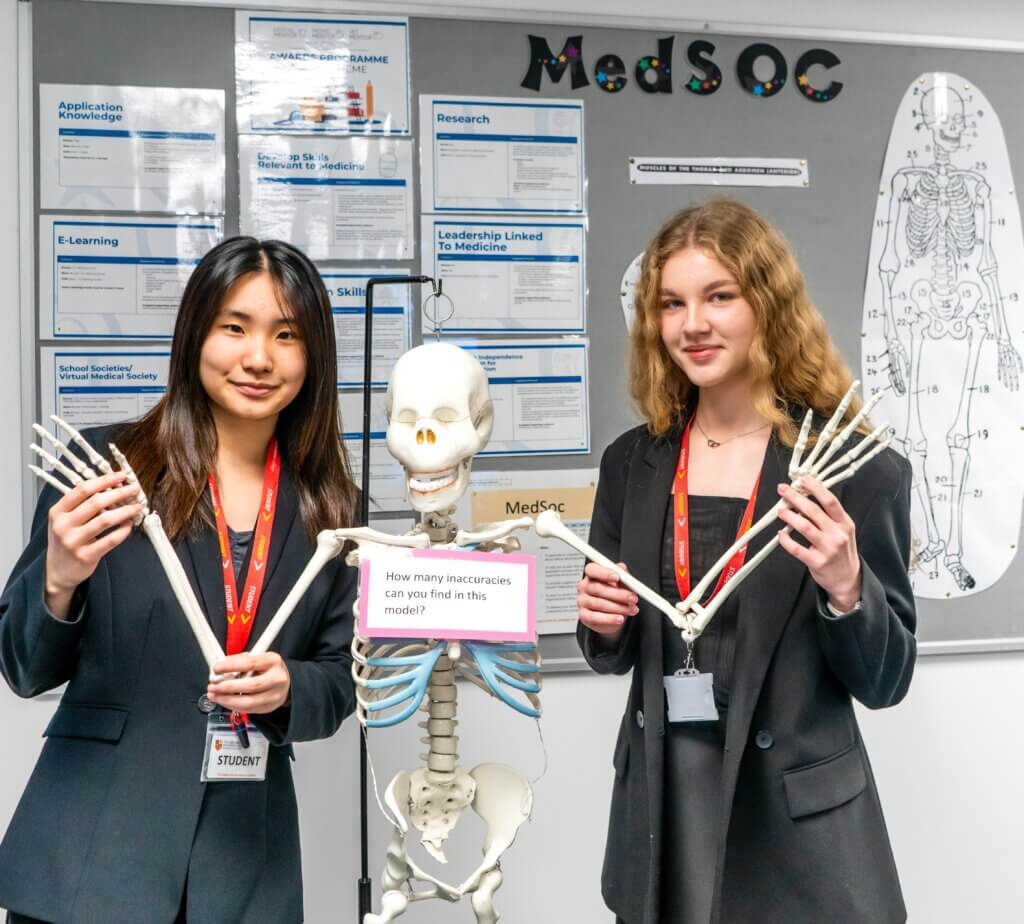UK Admissions • Undergraduate
UK UCAS Personal Statement Changes for 2026: Everything You Should Know
POSTED ON 04/17/2025 BY Toshit Godara

For decades, the UCAS personal statement has been a source of stress and a defining moment for UK university applicants. According to UCAS, 79 percent of applicants reported that writing this statement was difficult, leading to countless drafts, late-night rewrites, and endless advice from teachers, mentors, and online forums. But from the 2026 admission cycle onwards, this rite of passage will look very different. On July 18, 2024, UCAS announced changes in its traditional free-form personal statement to reshape how applicants tell their stories. These changes will be effective from September 2025, for students applying for entry in 2026. But what are these changes? How can applicants craft impactful statements? What are the dos and don’ts? This blog will explain it all.
What is the UK UCAS personal statement?
The UK UCAS personal statement is traditionally a 4,000-character, free-form essay. With many academically strong candidates applying for the same course, this statement offers applicants a unique opportunity to stand out. It allows them to highlight their strengths and gives admissions teams a more profound understanding of their personalities beyond their grades.
A personal statement should go beyond expressing interest in a chosen subject; it must demonstrate the skills and qualities required for success at the undergraduate level. Each point made should connect to its relevance to the course, reinforcing the applicant’s strength as a candidate. London School of Economics and Political Science states, “The quality of an applicant’s personal statement is very important at LSE. The school does not interview for places, so this is an applicant’s only opportunity to demonstrate that they are a good fit for the course.”
Why is the UK UCAS personal statement changing?
The current UK UCAS personal statement, with its free-form format, presents significant challenges. Many students struggle with structuring their thoughts effectively, and unequal access to guidance creates disparities. Universities also face difficulties comparing applications fairly due to varying writing styles and levels of assistance. Therefore, the UK UCAS has introduced a structured response format to address these concerns, making the process more equitable, accessible, and transparent. It hopes to level the playing field and reduce the advantages gained through extensive coaching by requiring students to answer specific questions.
Kim Dixit, CEO and Co-founder of The Red Pen endorses the change: “A structured approach ensures all students, regardless of background, can present their case effectively, reducing biases inherent in free-form essays.”
What are the 2026 UK UCAS personal statement changes?
The 2026 update to the UCAS personal statement introduces a more structured approach, replacing the traditional free-form essay with targeted responses to three key questions. The 4,000-character limit (including spaces) will remain, but each answer will require a minimum of 350 characters. This allows students to focus on demonstrating their strengths in an accessible and fair format. Let’s explore the three key questions that will define this new format.
Question 1: Why do you want to study this course or subject?
This question seeks to uncover the applicant’s interest and passion for the chosen field. This is crucial because, in the UK, students apply directly to a specific major, which they study for the entire three or four years of their undergraduate degree. Universities expect sufficient evidence that applicants are confident in their chosen field of study. Therefore, applicants should provide specific experiences or events that sparked their interest and discuss how they influenced their decision to pursue the subject at a higher level. For instance, reading particular books, attending relevant lectures, or participating in related projects can be concrete examples.
Possible talking points:
- Reasons for choosing a specific course: Universities want to understand what has drawn an applicant to their chosen course. The reasons could be a personal experience, an academic interest that has developed over time, or an individual who has influenced their aspirations. Explaining the motivation behind this choice provides valuable insight into an applicant’s enthusiasm and long-term commitment to the subject.
Example: Avoid saying: “I have always been interested in economics and enjoy studying how markets function.” Instead, say, “My interest in economics began at my grandfather’s textile business, where I saw how fluctuating raw material costs affected pricing. Conversations with him about supply chain inefficiencies and global trade policies sparked my curiosity, leading me to explore economic theories that explain these dynamics. Reading Ha-Joon Chang’s Bad Samaritans further deepened my understanding of how economic policies shape industries, reinforcing my desire to study this field at the university level.”
- Engagement with the subject: Applicants can also show how they have explored their subject beyond the classroom. The experiences could include reading, following industry trends, attending lectures, or participating in projects. Demonstrating independent learning assures universities of their strong foundation and passion for the field.
Example: Don’t say, “I have always been passionate about computer science and have participated in coding competitions.” Say, “Fascinated by how algorithms improve decision-making, I developed a programme that predicts customer preferences using purchase history. I applied the machine learning principles I studied in Andrew Ng’s online course to achieve this. I also attended a seminar on artificial intelligence at the India Habitat Centre, where researchers discussed ethical concerns surrounding AI bias. These experiences reinforced my drive to pursue computer science, as I am eager to understand further and contribute to this evolving field.”
- Future goals: Admissions teams look for applicants who have thought about how their chosen course fits into their future. Whether the goal is a specific career path or a broader set of skills for future opportunities, it is a good idea to articulate how this academic journey will equip them for what lies ahead.
Example: Avoid saying “I hope to work in finance after completing my degree and gaining experience in the industry.” Instead, try saying, “Having analysed the volatility of cryptocurrency markets for a high school research project, I became intrigued by risk assessment strategies in financial institutions. My long-term goal is to work in quantitative finance, where I can apply mathematical modelling to predict market behaviours. A degree in finance and economics will equip me with the analytical and problem-solving skills required to navigate this complex industry, enabling me to contribute to innovative investment strategies in the future.”
Question 2: How have your qualifications and studies prepared you for this course?
The second question expects applicants to reveal how their academic background has equipped them with the necessary knowledge and skills for the course. The answer may include discussing relevant subjects studied, specific coursework, research projects, or any academic achievements that align with the course requirements. Highlighting critical thinking, analytical abilities, and subject-specific competencies will demonstrate readiness for university-level study.
Possible talking points:
- Academic background and its relevance: An applicant’s past education showcases their suitability for the chosen course. This answer can include formal studies at school, specialised training programmes, and short courses that have expanded their knowledge. Universities prioritise relevance, so the focus should be on the most recent studies or training related to the chosen course.
Example (for Engineering): “My A Levels in mathematics and physics provided a strong theoretical foundation, but I applied these principles to real-world challenges during my Cambridge Immerse summer programme. Collaborating with peers, I designed and tested a small-scale wind turbine to study efficiency under varying wind speeds. This hands-on experience solidified my passion for engineering and problem-solving.”
- Skills that strengthen the application: Success in higher education relies on key skills gained through academic subjects. Problem-solving in mathematics, research in the humanities, or critical thinking from debates all help build a strong foundation. Applicants can highlight experiences, such as a module or project, that developed their strengths and relate to their chosen field.
Example (for Economics): “Participating in the International Economics Olympiad refined my analytical skills, particularly in game theory and market simulations. When researching the Nash equilibrium for my IB Extended Essay, I used real-world scenarios like pricing wars between airline companies to test my hypotheses. This project enhanced my ability to apply abstract economic principles to practical business strategies, a skill I aim to develop further in university.”
- Notable achievements: While formal qualifications are listed elsewhere in the application, universities also value unique achievements. Excelling in a competition, taking on leadership roles, or contributing to a school or community initiative shows ambition, initiative, and a proactive approach to learning—key qualities for university students.
Example (for Political Science): “As Secretary-General of my school’s MUN, I organised a regional conference that hosted over 200 delegates. Drafting resolutions on climate policy required extensive research into international agreements like the Kyoto Protocol. This leadership role refined my ability to negotiate, articulate policy proposals, and manage large-scale projects—essential skills for a career in international relations.”
Question 3: What else have you done to prepare outside of education, and why are these experiences useful?
This question highlights extracurricular activities, work experience, or personal projects that have deepened an applicant’s understanding of their subject. Applicants should show how these experiences built key skills like leadership, problem-solving, or teamwork and strengthened their commitment to the field. Clear links between these activities and the course are essential.
Possible talking points:
- Any hands-on experience: Whether it’s an internship, a part-time job, or a volunteering role, practical experience provides valuable skills for university study. Applicants can showcase how these experiences helped them develop transferable skills such as teamwork, communication, and problem-solving. Reflecting on these experiences and their connection to the chosen course can strengthen the application.
Example (for Business & Economics): “Interning at a fintech startup exposed me to real-world applications of economic models I had previously studied in textbooks. Tasked with conducting market research on customer spending behaviours, I analysed financial data and presented insights that influenced the company’s digital payment strategy. This hands-on experience strengthened my analytical skills and deepened my understanding of behavioural economics, reinforcing my desire to study the subject at university.”
- Life experiences: Overcoming a challenge, managing responsibilities such as caring for a family member, or adapting to a new environment can build qualities like resilience, empathy, and adaptability. Universities value these traits, especially when they align with the demands of the chosen field of study.
Example (for Medicine): “Growing up in a rural town with limited healthcare access, I often accompanied my grandfather on long trips to the nearest hospital. Witnessing his struggle to receive timely treatment sparked my interest in medicine and public health. Inspired to take action, I volunteered at a community health camp, assisting doctors in organising patient records and guiding elderly individuals through basic check-ups. These experiences instilled in me the importance of accessibility in healthcare and fueled my determination to pursue medicine.”
- Activities outside of academics: Whether participating in sports, reading widely, engaging in community work, attending summer schools, or pursuing creative projects, passion projects and extracurriculars demonstrate well-rounded interests and personal strengths. Applicants can highlight dedication, curiosity, and leadership—all qualities that make a strong university applicant.
Example (for Computer Science & Artificial Intelligence): “Fascinated by the intersection of technology and social impact, I developed a mobile application that connects volunteers with NGOs based on their skills and availability. This project, which I built using Python and Firebase, refined my coding abilities and deepened my understanding of user experience design and database management. To further enhance my knowledge, I completed Harvard’s CS50 online course and attended a workshop on AI ethics, where I explored the implications of bias in machine learning models. These experiences have reinforced my passion for computer science and my desire to use technology to drive meaningful change.”
Dos and don’ts for 2026 UK UCAS personal statement changes?
| Must Do | Must Avoid |
| Be concise: Stay within UCAS character limits while ensuring responses are essential Be specific and authentic: Use concrete examples to illustrate points, and ensure responses reflect experiences and interests. Demonstrate enthusiasm and commitment:A strong application conveys genuine passion for the subject. Showcase eagerness to engage with course materials and contribute actively to their academic community. Be clear and coherent: Structured responses logically, with a clear flow of ideas. | Being vague: Avoid broad statements; use specific examples to showcase unique experiences. Repetition: Each response should provide fresh insights without overlapping information. Overlooking academic links: Extracurricular activities should always connect to course-related skills and knowledge. Skipping proofreading: Errors in spelling or grammar can weaken an application. Careful review and feedback are essential. |
Change in admissions demands a shift in strategy. The new UK UCAS personal statement format isn’t just about answering questions. It’s about crafting clear, authentic reflections that stand out. If you need assistance crafting your 2026 UCAS personal statement, please get in touch. Our UK undergraduate admissions team looks forward to supporting you at every step of your UCAS application. Meanwhile, read our blogs: TMUA 2025: The Ultimate Guide To Acing This UK University Maths Entrance Exam and The UK UCAS: How to Shortlist Undergraduate Universities.




